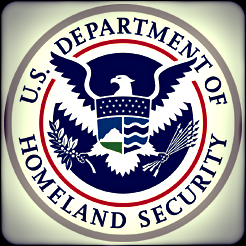
Acting DHS Secretary Kevin McAleenan has announced the appointment of former Virginia Attorney General Ken Cuccinelli to lead USCIS, replacing Francis Cissna, who was recently forced out to the surprise of many observers on all sides who considered him to be one of the most qualified and effective Trump appointees. Now, all of the immigration bureaus at DHS are led by someone serving in an acting capacity: Cuccinelli, Acting ICE Director Mark Morgan, Acting CBP Commissioner John Sanders, and McAleenan himself, who was commissioner of CBP until he stepped in to lead DHS temporarily after the departure of Kirstjen Nielsen.
With so many top officials still new in their posts, the festering border crisis, and so much that still needs to be done in other parts of the system, the country is in urgent need of a strong leader to take the helm of DHS as the Senate-confirmed secretary.
It seems unlikely that McAleenan will be nominated for the job, considering his record of partisanship and inappropriately outspoken support for Hillary Clinton. In the two years prior to securing a senior leadership position at CBP in 2010, McAleenan contributed more than $9,000 to the Democratic National Committee, Barack Obama's election campaign, and other Democrats.
Here for the president's nominations suggestion box is a brief, not exhaustive, list of good candidates, some of whom haven't been widely discussed in the media but who have the necessary knowledge, experience, gravitas, leadership abilities, and, especially, who will work for the president's agenda, not for the agenda of a previous administration or a special interest group.
- The strongest candidate is Tom Homan, who recently retired after serving 17 months as Trump's first acting director of ICE, a job that was the capstone to his 34-year career in immigration enforcement, which included working as a Border Patrol agent, immigration investigator, and senior manager. Homan remains a sought-after expert for the news media, and in addition to making the case for robust enforcement of our laws and passionately defending the immigration agencies, he frequently articulates cogent policy ideas.
- Pete Nunez formerly was the de facto border czar, when he was the U.S. attorney based in San Diego, where he persistently and systematically used immigration statutes to tackle human smuggling, drug trafficking, and illegal immigration. Now working in the private sector and academia, he also was Assistant Secretary of the Treasury for Enforcement under George H.W. Bush. He remains immersed in the immigration issue as the chairman of the board of the Center for Immigration Studies.
- Steve McCraw is the functional law enforcement chief of homeland security in Texas, where he is the director of the Department of Public Safety. In this role he has provided significant and critical state resources to support federal immigration and border security operations, and dealt with numerous cyber security, intelligence, and counter-terror issues. He has been a state trooper, FBI agent, and senior manager, and therefore highly qualified to run DHS, as my colleague Art Arthur describes here.
- Martha McSally was appointed to serve out the Arizona U.S. Senate term of the late John McCain, after losing a tight race for the seat held by Jeff Flake, who retired. McSally was in the House for two terms before running for Senate, and served on the Homeland Security and Armed Services committees. Before entering politics, she had a distinguished career in the U.S. Air Force, reaching the rank of colonel, and including combat duty. The pro-control immigration advocacy group NumbersUSA gives McSally a lukewarm "B-" for her time in Congress. Her strong support of border security and decreasing chain migration is notably offset by her enthusiasm for guestworker programs and amnesties, so the president would have to consider some kind of "pre-nuptial" agreement with expectations clearly laid out so as to avoid placing yet another person in the job who fails to work hard enough for his principles and agenda.
